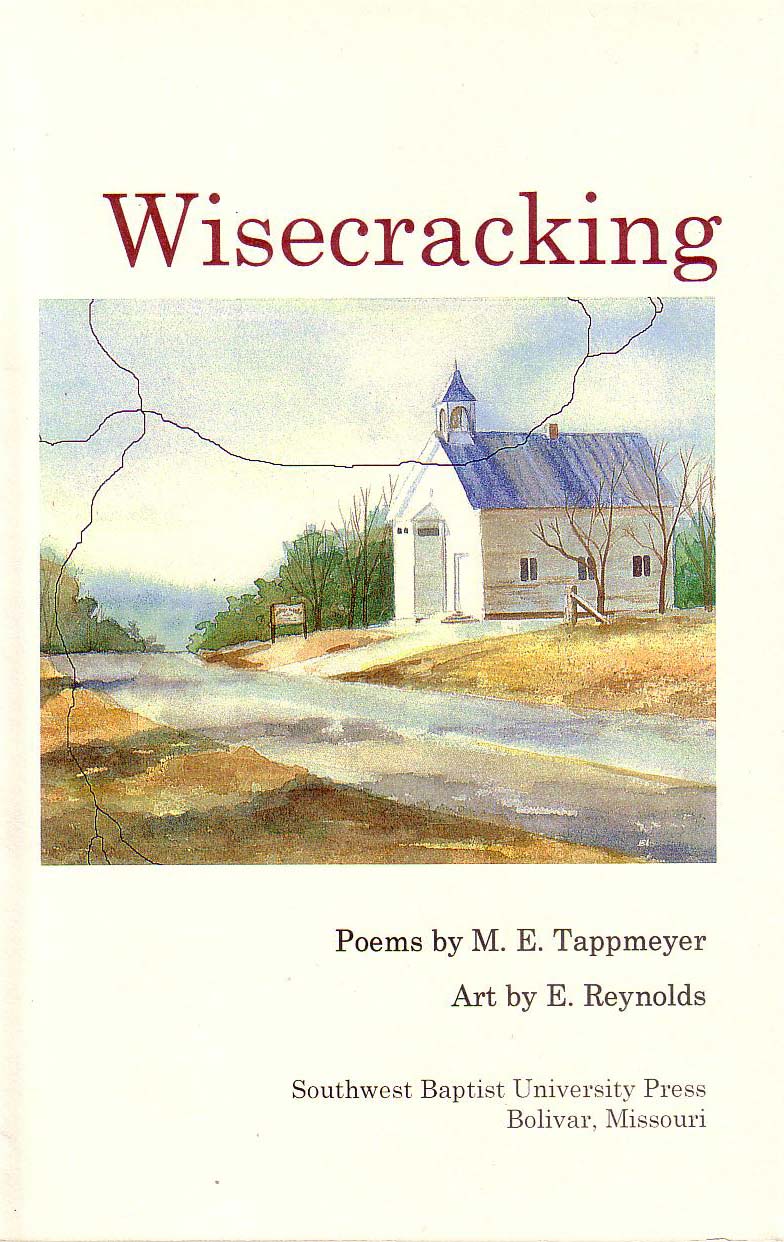POEMS BY MEMBERS
MAN / MANKIND
Phyllis Moutray
Whether one speaks
of the family of man,
or the family of a man,
one speaks of a microcosm.
For each family has its characters--
its Archie Bunker,
its good ordinary man
(so often portrayed by Jimmy Stewart),
its mentally ill (Unabombers),
its Edith, Madonna, and
Julia Roberts
Each man has his Achilles Heel,
his Atlas Shrugs.
Each man achieves a peak in his life's work,
has his moment in the sun.
Each man experiences the death of a love,
and periods of grief.
So, if "everything is coming up roses today,"
tomorrow it may not.
For though we may wish it,
none of us is the best,
nor are we the worst;
but rather somewhere in between.
So we need the rest of us
to help us
be the best us we can be.
AH, SUMMER
Velvet Fackeldey
The loathsome winter's gone at last,
but the heat melts my bones,
melts my brain.
The blazing sun cooks my face,
cooks my skin.
My head aches and my feet sweat,
all my clothes stick to me.
Drink water, iced tea, anything cold.
Run indoors to artificial cool
and wait for winter's bitter arctic chill.
SUMMER STORM
Bev Conklin
Fluffy white clouds growing larger,
moving faster, covering the sun for lengthening periods,
slowing the rotating display of light and shadow
to a final cessation.
Too early in the day, solid darkness appears
on the horizon. Distant low rumbles of thunder
orchestrate its steady, menacing advance in this direction.
Fluttering sheets of light accent the darkness.
No special pattern of timing, just accelerating warnings
of Nature's building nervous energy.
Breathless humid stillness is swept away
by frenzied, whirling breezes
playing with dead twigs, plastic cups, and other highway
debris.
These sporadic gusts are swallowed
by a roaring wall of straight-line winds from the west.
A sudden burst of rain plops and bounces
from roads, sidewalks, and open decks.
The dry, drought-desiccated earth and grass greedily suck
at every drop.
"Give us more," they seem to plead. "So much more is needed."
The rain complies.
Changing to a solid, wind-driven sheet of water,
it is temporarily merged with round, pea-sized pellets of
ice.
Overhead, thunder directs the tempest,
changing from rumbles to percussive explosions of sound
interspersed with sizzling crackles
as jagged swords of lighting
seem to thrust and parry, dueling to be first
to impale whatever lies below.
As quickly as it started, Nature's tantrum ends
with gentle tears of light rain. Clouds disappear.
Still blushing pink, Mother Sun appears, checks that all is
well,
and quickly slides beneath the horizon to rest.
NINE LIVES
Judy Young
I am a cat.
I need nine lives.
Having only one
Deprives.
TO JANYCE
Tania Gray
Your neat red house is on my mind
long since you left us all behind;
remembering, I slowly toil
with turpentine and linseed oil,
Just scrubbing woodwork as you did
while keeping house, an invalid
who rid her floors of red clay soil
with turpentine and linseed oil.
You celebrated artistry.
I'll celebrate your memory
by painting dogwoods quatrefoil
with turpentine and linseed oil.
WHAT IS UNDER MY FEET?
Jean Even
What is growing under my feet?
Dust bunnies and crunches to defeat.
Why did I ever let it get so bad
When I had the power to conquer? I'm sad!
Now I must get busy to do what I can.
Bring out the dust buster and not to fan
All my mess up under the carpet
Just to keep a mess for a pet.
FORTY-FOURTH ANNIVERSARY
Nancy Powell
I place my hand in yours,
You place your lips on mine.
We are two hearts in love,
Lives that forever twine.
|
WRITE AS YOU GO
Gwen Eisenmann
Write as you go.
There are poems everywhere.
Rhyme, rhythm, writing
in feet and faces,
what life is all about
in wordless places.
Swing it, bring it,
write your ingenuity
before you lose it.
It's all poetry.
BAYOU BROTHERS
Harding Stedler
I came too late
to file their teeth.
Buried now in mud
along the bayous' banks,
they hibernate for spring.
I can safely wade the waters
while they sleep,
safely gather clams
and crawfish
in their breeding grounds.
I can even pitch a tent
and safely sleep a winter
with the alligators.
TRUTH BE TOLD
Mark Tappmeyer
“Which is easier: to say to the paralytic,
‘Your sins are forgiven,’ or to say,
‘Get up, take your mat and walk’?”
Mark 2:9
a little bone straightening
was but verbal play
for him.
Not the task you might expect
against the real ton
He had to press,
a spirited clean and jerk
above his chest.
To them who sneered
His slightest breath
had blown away a boulder but
this charlatan couldn’t hoist a bag
of pigeon feathers to his shoulder.
EVENING ROUNDS
Valerie Esker
Fanny fretted over Frank.
His handsome face was haggard.
She watched him limp home late at night
so tired, he sometimes staggered.
He toiled each eve at the hospital
as a bio-med technician,
while she worked there in ICU--
each job, high-stress position.
They both claimed early retirement,
then bought a little nest
where they could read and swim and play,
enjoying well-earned rest.
But time has a way of altering
one's philosophical view.
Before too long the two of them
became a disenchanted crew.
Most evenings you can find them now
at the South-side Medical Suite.
Frank mops the floors with gusto.
Fanny vacuums to calypso beat.
Each metal sink is polished bright,
each hallway litter free,
In gleaming bowls in every john
they've found epiphany!
ANOTHER THREE UNRELATED CINQUAINS
Patricia A. Laster
Every
thirty minutes
all night long, he pops in,
asks, “Is it time to open our
presents?”
He dropped
a sack of flour
on the Imperial
Palace, proving it could indeed
be bombed.
Tax day:
enough to take
the bloom out of April’s
dogwood, plum, pear, forsythia,
redbud.
HEAVEN AND THE SECRETARY
Tom Padgett
The secretary said her life was ruined.
She sat amid a general disrepair
that Sunday afternoon relating how
her hard computer disk had "crashed" and lost
the data she had stored the last six months.
The copier was "on the fritz" again,
requiring tape to keep its panels shut
and jamming every time "you looked crossways."
She sighed for Heaven, confident that there
no one will work--at least not with machines.
"But what about mechanics, engineers--
those guys who fill their lives down here with parts
and plans? What will they do up there?" I asked.
"Oh, all of them will be in Hell," she said,
"because they overcharged the rest of us.”
VISIT WORKSHOP FOR AN ASSIGNMENT.
Top | Workshop | Index
|

